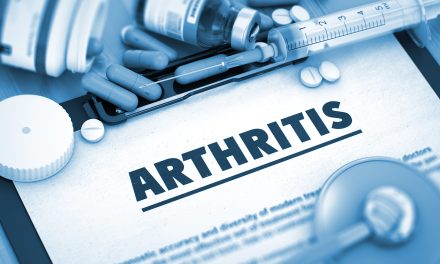Arthritis is a common condition characterized by joint pain and inflammation affecting millions worldwide. Management of arthritis often includes medication, physical therapy, and lifestyle changes. In addition, many individuals turn to dietary supplements to find relief from their symptoms. Identifying the most effective supplements with a more natural approach is crucial for those seeking to alleviate the discomfort caused by arthritis.
A growing body of research investigating various supplements and their impact on arthritis-related symptoms. Omega-3 fatty acids, for instance, are known for their anti-inflammatory properties and may be beneficial in reducing joint pain. Curcumin, the active compound in turmeric, has also garnered attention for its potential to manage inflammation. However, while certain supplements show promise, it is essential to consider proper dosing, administration, and potential side effects. Moreover, supplements should not replace traditional medications but rather complement them under the guidance of a healthcare professional.
Key Takeaways
- Arthritis management can be enhanced with certain dietary supplements, alongside traditional treatments.
- Research supports the anti-inflammatory benefits of supplements like omega-3 fatty acids and curcumin for joint pain relief.
- Responsible usage of supplements requires considering the correct dosages, potential side effects, and interaction with existing medications.
Understanding Arthritis
Arthritis encompasses a range of joint disorders characterized by inflammation and pain. It is crucial to recognize its types and symptoms for effective management and treatment.
Types of Arthritis
Osteoarthritis (OA) is the most common form of arthritis, resulting from the wear and tear of cartilage, leading to joint damage over time. It typically affects the elderly but can result from joint injuries or obesity-related stress. Rheumatoid arthritis (RA) is an autoimmune disorder where the immune system mistakenly attacks the joints, causing severe inflammation.
Symptoms of Arthritis
The symptoms of arthritis can vary depending on the type but generally include:
- Joint stiffness, especially in the morning or after periods of inactivity
- Inflammation around the joints, leading to swelling and redness
- Pain during joint movement or while at rest
These symptoms can progressively worsen and result in chronic pain, affecting one’s quality of life. Early recognition and treatment are vital to manage the effects of arthritis.
Role of Nutrition in Arthritis Management
Nutrition plays a critical role in the management of arthritis, influencing symptoms and the overall health of joints. By understanding the connection between what you eat and how your joints feel, you can better control your condition.
Importance of a Balanced Diet
A balanced diet is crucial for individuals with arthritis as it helps provide the vitamins and minerals required for maintaining joint health and managing inflammation. It’s essential to include a variety of foods to ensure that one gets a full range of nutrients to support joint health. Key dietary components include:
- Omega-3 Fatty Acids: Found in cold-water fish and flaxseeds, omega-3s are praised for their anti-inflammatory properties.
- Antioxidant-Rich Foods: Fruits and vegetables, particularly those high in vitamins C and E, can quell inflammation.
- Fiber: High-fiber foods like whole grains may lower C-reactive protein (CRP) levels in the blood.
In addition to whole foods, certain dietary supplements may also be beneficial. However, they are best utilized in conjunction with a healthy diet, rather than as a replacement for nutrients from food:
- Glucosamine and Chondroitin: These natural components of cartilage may help in relieving pain and improving joint function.
- Vitamin D and Calcium: Both are critical for bone health and could potentially play a role in preventing joint space narrowing, a marker of progression in osteoarthritis.
Although there’s no definitive cure for arthritis, integrating proper nutrition into one’s lifestyle can help alleviate symptoms and may slow the progression of the disease. It is always recommended to consult with a healthcare provider before starting any new supplement regimen.
Evidence-Based Supplements for Arthritis
Selecting the right supplements can potentially reduce arthritis symptoms. Recent research and evidence highlight a few key nutrients and herbal supplements that may be effective in managing inflammation and pain associated with arthritis.
Vitamin and Mineral Supplements
- Vitamin C: Known for its antioxidant properties, vitamin C plays a role in collagen formation and may help slow the progression of osteoarthritis.
- Vitamin D and Calcium: These are crucial for bone health, and studies suggest that an adequate level of vitamin D is important for people with arthritis, potentially aiding in pain reduction.
- Vitamin K: Important for bone cartilage and known for its role in bone mineralization, vitamin K may be beneficial for arthritis patients.
- Omega-3 Fatty Acids: Found in fish oil supplements, they have proven anti-inflammatory effects that may reduce the symptoms of arthritis.
Herbal Supplements
- Turmeric and Curcumin: This spice contains curcumin, which has strong anti-inflammatory and antioxidant properties, showing evidence of reducing arthritis pain.
- Glucosamine and Chondroitin: These supplements may support joint health and have been shown in some studies to help with the reduction of arthritis-related pain, although results can vary.
- Collagen: Supplements containing collagen have been associated with joint health. They may improve symptoms by aiding in the rebuilding of cartilage, though more research is needed for a definitive conclusion.
Incorporating these supplements into a treatment plan should be done under medical supervision, as they may interact with other medications and vary in their effectiveness from person to person.
Potential Benefits of Omega-3 Fatty Acids
Omega-3 fatty acids are known for their anti-inflammatory properties, which may be beneficial for individuals with arthritis. By integrating omega-3s into one’s diet, a person may potentially reduce the inflammation that contributes to joint pain and stiffness.
Sources of Omega-3s
Omega-3 fatty acids can be found in various forms, with fish oil being one of the most well-known sources. Fish oil supplements often contain a high concentration of omega-3s, particularly the types known as docosahexaenoic acid (DHA) and eicosapentaenoic acid (EPA). Consuming fatty fish, such as salmon and tuna, is another effective way to increase omega-3 intake. These fish are, in fact, some of the richest natural sources, and integrating them into one’s diet may offer benefits for those looking to alleviate symptoms of arthritis.
For individuals who prefer alternatives to fish or fish oil supplements, there are plant-based sources rich in another type of omega-3 fatty acid called alpha-linolenic acid (ALA), such as flaxseeds, chia seeds, and walnuts. While ALA can be converted into EPA and DHA in the body, this process is not very efficient, and thus, fish or supplements may be a more direct source of the beneficial EPA and DHA.
Understanding Curcumin’s Role
Curcumin is the active component in turmeric that has been extensively studied for its potential to alleviate arthritis pain. It is known for its natural anti-inflammatory properties, central to its use in combating the discomfort caused by arthritis.
Turmeric and Arthritis
Turmeric, a common spice in Asian cuisine, contains curcumin, its most active ingredient. Investigations have shown that curcumin might help mitigate the inflammation linked with arthritis. Specifically, a study suggests this compound could help reduce pain and improve function in people with knee osteoarthritis.
People seeking natural alternatives often use turmeric-based supplements to manage their arthritis symptoms. The anti-inflammatory qualities of curcumin can make it a significant component in the fight against the chronic inflammation that characterizes arthritis. This is supported by evidence indicating that curcumin inhibits specific inflammatory markers prevalent in arthritis.
However, it is essential to note that while studies have found positive results, curcumin’s bioavailability, or the body’s ability to absorb and use it effectively, is relatively low. That’s why many curcumin supplements contain additional ingredients like piperine, which is found in black pepper and can enhance absorption. When searching for accessories, one should consider those formulated to increase curcumin’s bioavailability to ensure it receives its full benefits.
Dosing and Administration
When considering supplements for arthritis, it is imperative to follow the recommended dose as indicated on the product label. Dosages can vary widely between accessories, and taking the correct amount is crucial for both efficacy and safety.
For glucosamine and chondroitin, two supplements often used in tandem, a standard dose could be 1500 mg of glucosamine and 800-1200 mg of chondroitin daily, typically in divided doses. However, users must check the specific product label for exact dosing instructions.
Omega-3 fatty acids, found in fish oil supplements, may be advised at a dose providing 300-1000 mg daily of EPA and DHA combined. It’s best to start at the lower end of the range and increase as directed by a healthcare provider.
With curcumin, an active compound in turmeric, suggested doses may range from 100-500 mg daily, but the strength of the preparation and its bioavailability plays a significant role.
SAM-e (S-adenosylmethionine) is another supplement that could benefit arthritis, with standard oral doses ranging from 600-1200 mg per day, customarily divided into two or three doses.
Individuals need to consult with their doctor or a healthcare professional before starting any new supplement regimen, especially to ensure that it doesn’t interfere with existing medications or health conditions.
Furthermore, one should not exceed the recommended daily allowance for any nutrient or supplement without medical advice, as doing so can result in adverse effects.
While supplements may offer support, they should be part of a comprehensive management plan that may include other services such as physical therapy and lifestyle changes.
Safety and Side Effects
When considering supplements for arthritis, it is crucial to be aware of potential safety concerns and side effects. While supplements can offer benefits, they may also pose risks, especially if taken incorrectly or in combination with other medications.
Contraindications and Interactions
Some supplements may interact adversely with prescription or other accessories, potentially altering their effectiveness. For instance, certain supplements might increase the risk of bleeding if taken alongside blood thinners. Individuals with pre-existing liver conditions should consult a healthcare professional before starting any new supplement, as some ingredients can exacerbate liver issues.
Side effects such as nausea and vomiting are possible, particularly if supplements are taken on an empty stomach or in high doses. It is essential to follow the recommended dosages and be vigilant about how one’s body responds to a new supplement regimen. If side effects occur, discontinuing the supplement and seeking medical advice is advisable.
Boundary cases and specific sensitivities can result in unique interactions and side effects, emphasizing the importance of personalized medical guidance. Always inform healthcare providers of all supplements to avoid harmful interactions and ensure safe management of arthritis symptoms.
Comparing Natural Supplements to Traditional Medications
When managing arthritis, one may consider both natural supplements and traditional medications. Each approach offers distinct advantages and potential drawbacks. Conventional medicines for arthritis, such as nonsteroidal anti-inflammatory drugs (NSAIDs), are typically prescribed for their effective pain relief and anti-inflammatory properties. They are rigorously tested for efficacy and regulated, ensuring a predictable response.
On the other hand, natural supplements have gained popularity due to their perception of being more ‘gentle’ on the body. Popular supplements such as glucosamine and chondroitin have mixed research on their effectiveness but may help with osteoarthritis pain and stiffness. Supplements like fish oil, SAM-e, and curcumin are noted for their anti-inflammatory properties. However, the evidence supporting these supplements varies, with some showing more promise than others.
| Traditional Medications | Natural Supplements |
|---|---|
| Predictable effectiveness | Varied evidence |
| Possible side effects | Generally, fewer side effects |
| Prescription needed | Available over the counter |
| Anti-inflammatory agents | May have anti-inflammatory benefits |
Natural supplements, such as those listed by the Arthritis Foundation, often require more research to validate their effectiveness and dosing. Patients should consult their healthcare provider before integrating them into their treatment plan to avoid interactions with existing medications.
While supplements may offer a complementary approach, traditional medications remain a critical part of many arthritis management plans due to their established clinical benefits and the strict standards they meet. It is essential to approach the choice between medications and supplements with a clear understanding of each option’s potential benefits and limitations.
Lifestyle and Home Remedies
Lifestyle changes can significantly impact the quality of life for individuals with arthritis. Incorporating regular exercise into one’s daily routine and seeking support from the arthritis community are pivotal steps toward managing symptoms effectively.
Exercise and Arthritis
Regular physical activity is essential for maintaining joint health in individuals with arthritis. Exercise can help reduce pain, increase flexibility, and strengthen the muscles around the joints, thereby alleviating stiffness. Examples of low-impact activities beneficial for people with arthritis include:
- Swimming: This full-body workout puts minimal joint stress and can improve cardiovascular health.
- Walking is a simple yet effective way to keep joints moving, reduce pain, and prevent further damage.
- Cycling: Helps maintain joint flexibility and can be done either on a stationary bike or outdoors.
- Tai Chi: This gentle form of martial arts improves balance, flexibility, and muscle strength.
People with arthritis should consider joining an arthritis community or participating in programs supported by the Arthritis Foundation. These groups provide invaluable resources, education, and community-based support, creating a network of peers who can share their experiences and offer emotional support. Moreover, many organizations advocate for arthritis research and provide updated guidelines for managing arthritis through lifestyle interventions.
Access to Care and Support
The American arthritis community is bolstered by many resources sensitively designed to navigate patients through the complex landscape of managing this condition. Access to care is multifaceted, encompassing personalized services and educational tools crucial for informed decision-making.
Community support is pivotal, offering patients a sense of belonging and shared experience. This network fosters peer-to-peer learning and enables access to community-driven initiatives often informed daily by those who live with arthritis.
- Educational Resources: Patients can engage with various educational materials from different health services and organizations. These materials help demystify treatment options, including supplements beneficial for arthritis management.
- Services: Professional care services extend beyond medical treatment, involving rehabilitation support and counseling to ensure a comprehensive approach to managing arthritis.
- Access to Care: Equitable access to essential healthcare services enables timely and effective treatment, which can significantly improve patient outcomes. In the United States, initiatives are in place to bridge gaps in care access, particularly for underserved communities.
Leveraging these elements ultimately contributes to a more knowledgeable and empowered individual who can manage their arthritis with confidence. The key is ensuring that individuals are aware of and can reach these supportive arms within the broader arthritis community in America.
Emerging Research and Future Prospects
In arthritis treatment, ongoing research focuses on developing more effective, less invasive therapies. These advances aim to address the complexity of conditions like osteoarthritis and rheumatoid arthritis to alleviate pain and halt or reverse joint damage.
Breakthroughs in Arthritis Treatment
Osteoarthritis (OA): Recent advances in the treatment of osteoarthritis are promising, illustrating the potential to slow the disease’s progression. Research has been concentrated on understanding the molecular pathways involved in the destruction of articular cartilage, which has led to the development of drugs that target these specific pathways.
Rheumatoid Arthritis (RA): For rheumatoid arthritis, the future of management and treatment appears to be personalized medicine. This involves tailoring treatment based on an individual’s genetic makeup, lifestyle, and disease progression. Efforts are being made to incorporate dietary supplements like vitamin D and fish oils, which might modulate immune system responses.
- Juvenile Arthritis: Groundbreaking research into juvenile arthritis aims to understand the immunological underpinnings to improve outcomes for younger patients.
The Arthritis Foundation also continues to be a critical supporter of cutting-edge research. They strive to find cures for the disease while providing resources and support to those affected. With each passing year, discoveries offer hope for more efficient and patient-friendly treatments, indicating a future where arthritis may be more manageable or even curable.
Frequently Asked Questions
In managing arthritis, supplements can play a role in alleviating symptoms. This section addresses common inquiries regarding the best supplements for joint health and arthritis relief.
Which vitamins are known to alleviate joint pain and stiffness?
Vitamins such as D and E are known for their potential to alleviate joint pain and stiffness. Adequate vitamin D levels are crucial for bone health, while vitamin E has antioxidant properties that may reduce inflammation.
What is considered the most potent supplement for alleviating joint pain?
Glucosamine, often taken with chondroitin, is considered one of the most potent supplements for joint pain relief. It is thought to help rebuild cartilage and restore joint function.
Can you recommend a multivitamin effective for managing rheumatoid arthritis symptoms?
Multivitamins containing a mix of anti-inflammatory vitamins and minerals, such as omega-3 fatty acids, vitamin D, and selenium, may help manage rheumatoid arthritis symptoms. However, individual requirements vary, so a healthcare provider’s advice is essential.
Which joint health supplements are most beneficial for older adults?
Older adults may benefit from supplements like glucosamine, chondroitin, and omega-3 fatty acids, all of which can support joint health and reduce discomfort associated with arthritis.
What are the top supplements recommended for osteoarthritis in the spine?
The top supplements for osteoarthritis in the spine include glucosamine, chondroitin, and omega-3 fatty acids. These can help reduce inflammation and pain in the spinal joints.
How can one address arthritis symptoms using natural remedies?
Natural remedies for arthritis symptoms include turmeric, containing the anti-inflammatory compound curcumin, and ginger, which may help reduce pain and inflammation. However, they should be used with or after consulting with a healthcare professional.






















